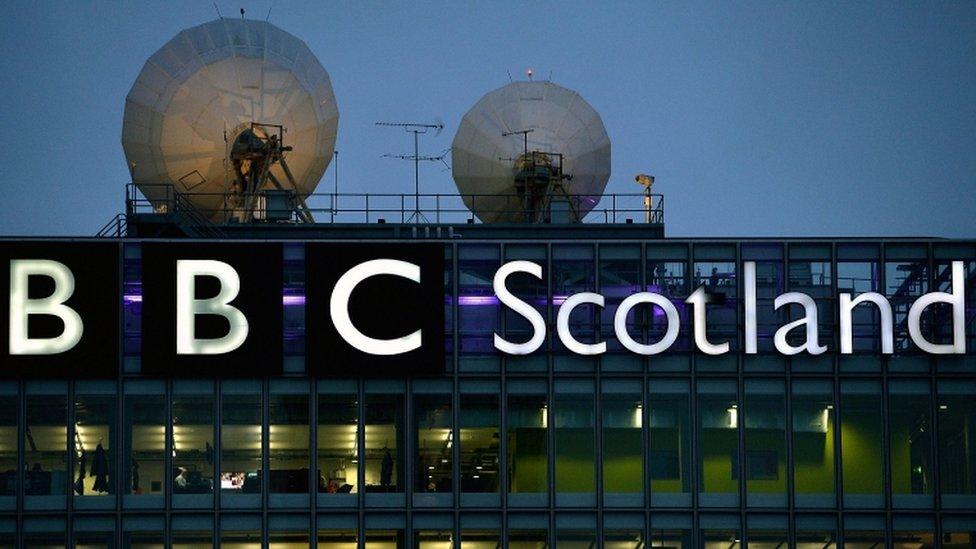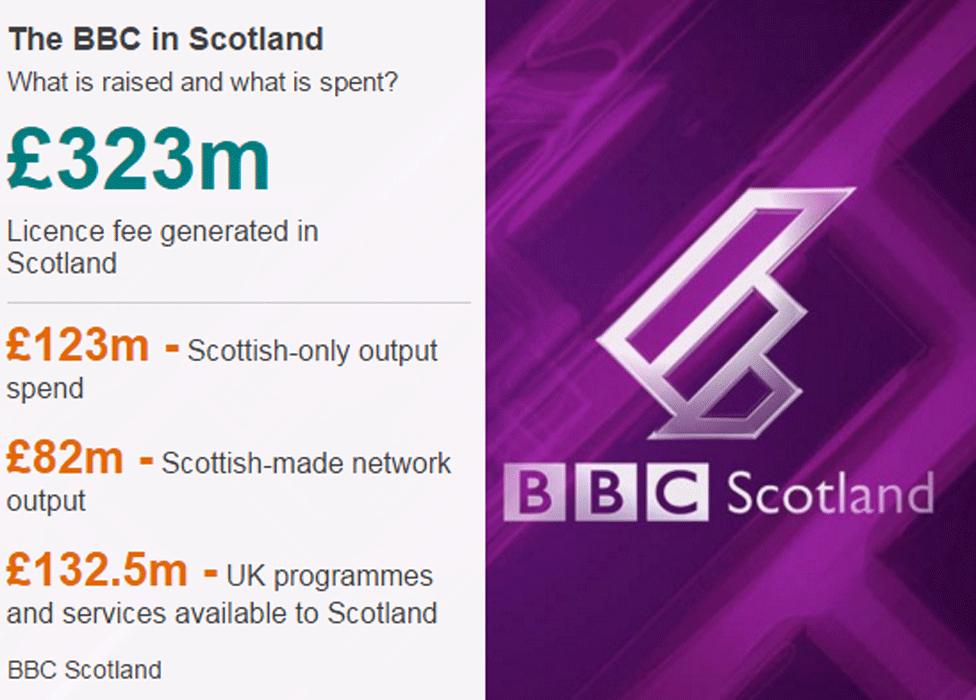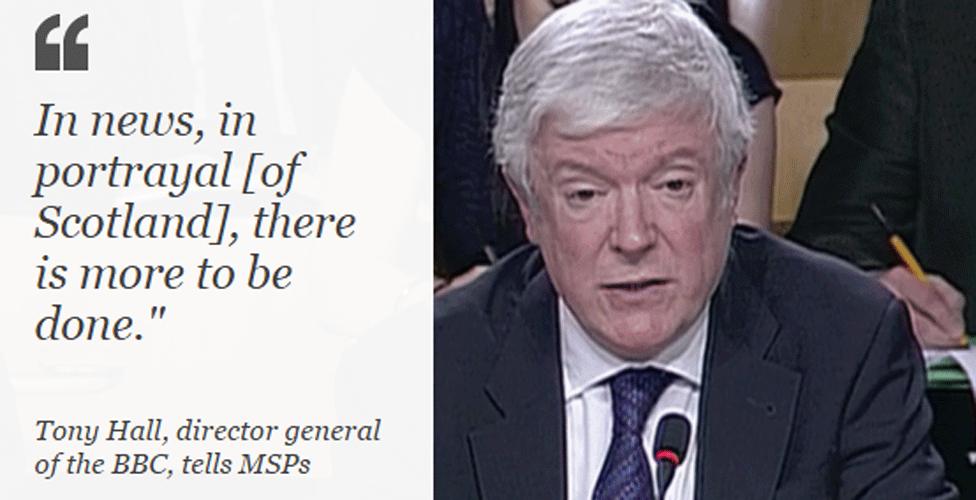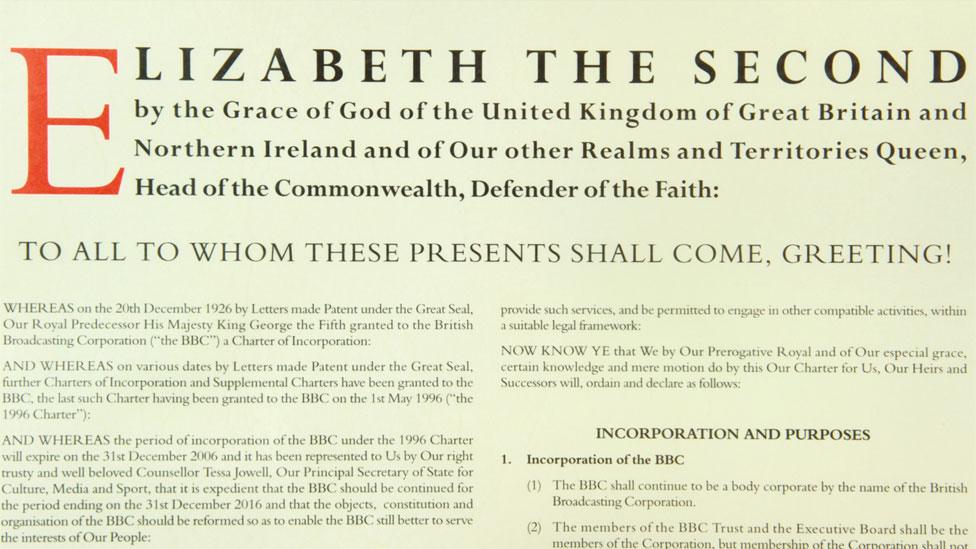Scottish government publishes BBC Scotland proposals
- Published

The Scottish government has published its proposals for strengthening BBC Scotland, external.
It said its suggestions would help the BBC deliver "better, more representative content" for Scottish audiences.
They included calls for a decentralised BBC structure, with BBC Scotland given greater control over budgets and commissioning.
It also proposes a new Scottish-focused version of the Six O'clock News.
And it has called for the creation of a new Scottish TV and radio channel.
The paper also called for a semi-autonomous Scottish board to be created to hold BBC Scotland to account. The board would itself be accountable to the Scottish Parliament.
The policy paper will feed into the BBC's charter renewal process, in which the Scottish government has been given a formal role for the first time.
The Scottish government wants broadcasting policy to be fully devolved to Holyrood and sees charter renewal as a stepping-stone towards this ambition.
It also wants more support for Scottish independent producers to take their content to the global market, and for Gaelic channel BBC Alba to receive the same levels of in-house programming as the Welsh language channel S4C.
BBC director general Tony Hall told MSPs last month that the corporation accepted it was "time to make changes" to how its news services covered Scotland.
The BBC in Scotland
What is raised and what is spent?
£323m
Licence fee generated in Scotland
-
£123m - Scottish-only output spend
-
£82m - Scottish-made network output
-
£132.5m - UK programmes and services available to Scotland

A BBC spokesman said audiences across Scotland get "excellent value" from the BBC, and were some of the highest users of its services.
He added: "We welcome the Scottish government's contribution to the Charter Review debate and look forward to further discussions with them about how to provide the best possible service to Scottish licence fee payers.
"However, as the report notes, the financial constraints on the BBC will see the corporation having to make close to 20% savings over the next few years."
The Scottish government stressed it was "very strongly committed to the editorial independence of the BBC".
But it said it had requested that BBC Scotland be given editorial control "to ensure that appropriate editorial decisions can be made, in particular in relation to news and current affairs which accurately reflect the impact of issues in Scotland".

The policy paper stated: "In the period following the referendum on Scottish independence, there has been detailed scrutiny of the news and current affairs coverage in Scotland.
"A common thread through this discussion has been the assertion that the current coverage of both national and international news and current affairs by BBC Scotland is insufficient in both scope, scale and quality of output, with audience satisfaction figures at little more than 50%.
"A more comprehensive approach to news with a greater voice for Scottish journalists on Scottish issues in the UK network as well as on national and international stories for the Scottish network cannot now be resisted and is a change which does not require changes in the charter."
'Journalistic talent'
It said the recent appointment of a new Head of News in Scotland was a "welcome first step".
But it said there needed to be a "more fundamental consideration" by the BBC of how it ensures that national and network news is able to cover stories from within and outwith Scotland, and "make best use of our journalistic talent to better reflect the views of audiences."
Culture Secretary Fiona Hyslop said full control of the licence fee money raised in Scotland could deliver up to an additional £100m of investment in Scotland's creative sector every year, which she said could support an extra 1,500 jobs and contribute up to an additional £60m to Scotland's economy.

What is the BBC charter and why is it important?

The BBC's charter was last renewed in 2007
The Royal Charter is the constitutional basis for the BBC and, as such, effectively allows the BBC to exist.
It sets out the public purposes of the corporation, guarantees its independence, and outlines the duties of the people that run it - the Trust and the Executive Board.
The first charter ran from 1 January 1927 to 31 December 1936.
The current charter states that the BBC exists to serve the public interest.
It sets out how the BBC should serve audiences through its six "public purposes" such as "representing the UK, its nations, regions and communities".
The charter runs until 31 December 2016, and the UK government has already started a review process to put in place a new charter for the next 10 years.